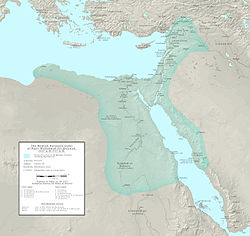The filly worth 600,000 dirhams
I finally located the original reference to the famous account of the gift of a really expensive desert-bred mare to al-Malik al-Nassir Muhammad Ibn Qalawun, Mamluk Sultan of Egypt, Syria and Hijaz. He reigned from 1293 to 1341 CE, with two interruptions (1294-99 and 1309-10).

Al-Nassir Muhammad was really fond of desert-bred horses from Arabia. He paid large sums for them and collected them in large numbers — a sort of precursor to Abbas Pasha. When he died, he left behind 4,800 of these horses in his stables, not counting the ones he had given to his Mamluks during his long rule.
The account of that expensive gift occurs in pages 503 and 506 of this edition of al-suluk li-ma’rifat duwal al-muluk (free download link for those who read Arabic!), a work by Taqi al-Din al-Maqrizi (1364-1442 CE). Maqrizi was one of the foremost historians and chroniclers of the Mamluk Sultanate. It is not to be found in Maqrizi’s al-mawa’izh wa al-i’tibar, as the Arabian horse website of the Bibliotheca Alexandrina says.
Here is my translation of the account, under the events of the year 715 Hijri (1315-16 CE), followed by my notes:
On [this year], Muhammad ibn ‘Issa, the brother of the amir Muhanna came [to Cairo]. He apologized on behalf of his brother Muhanna, and presented the Sultan with an asil mare [faras asil]. The mare was offered in Sha’ban, and was known as Bint al-Karta. Her price and her cost and reached six hundred thousand dirham. The Sultan sent written instructions for Muhanna to return to the country and bestowed [gifts] upon Muhammad Ibn ‘Issa […].
And a few pages later:
On [this year], a filly known as Bint al-Karta reached the Sultan. He had paid for her about two hundred and ninety thousand dirhams, plus a village in the countryside of Hama. It was said that her cost to the Sultan had reached six hundred thousand dirham.
Notes:
Muhanna: This was Muhanna ibn ‘Issa ibn Muhanna Aal Fadl (died 1335 CE), Shaykh of the Aal Fadl branch of the Tai Bedouin tribe and “commander of the Bedouin” of the Syrian desert on behalf of the Mamluk Sultan. In this episode, he had fallen out with the Mamluk Sultan, who exiled him and was trying to make amends by sending expensive gifts with his brother. It worked.
amir: Muhanna was given the title of amir al-‘Arab by the Sultan, meaning “commander of the Bedouin.
An asil mare: faras asil. An early mention of the term asil as applied to horses in Maqrizi (died 1442 CE).
Bint al-Karta: This is how the filly’s name is spelled once in the printed version of Maqrizi’s book. It occurs a few page later as Bint al-Kazta. Neither make sense. Some speculate that the spelling should be Bint al-Karsha with a connection to the Krush strain. I doubt it. One should access early manuscript versions of the work to find out.
Six hundred thousand dirhams: two hundred and ninety thousands plus the village’s income. I need to calculate that, in today’s currency.